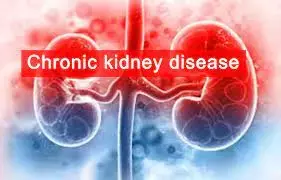- Home
- Medical news & Guidelines
- Anesthesiology
- Cardiology and CTVS
- Critical Care
- Dentistry
- Dermatology
- Diabetes and Endocrinology
- ENT
- Gastroenterology
- Medicine
- Nephrology
- Neurology
- Obstretics-Gynaecology
- Oncology
- Ophthalmology
- Orthopaedics
- Pediatrics-Neonatology
- Psychiatry
- Pulmonology
- Radiology
- Surgery
- Urology
- Laboratory Medicine
- Diet
- Nursing
- Paramedical
- Physiotherapy
- Health news
- Fact Check
- Bone Health Fact Check
- Brain Health Fact Check
- Cancer Related Fact Check
- Child Care Fact Check
- Dental and oral health fact check
- Diabetes and metabolic health fact check
- Diet and Nutrition Fact Check
- Eye and ENT Care Fact Check
- Fitness fact check
- Gut health fact check
- Heart health fact check
- Kidney health fact check
- Medical education fact check
- Men's health fact check
- Respiratory fact check
- Skin and hair care fact check
- Vaccine and Immunization fact check
- Women's health fact check
- AYUSH
- State News
- Andaman and Nicobar Islands
- Andhra Pradesh
- Arunachal Pradesh
- Assam
- Bihar
- Chandigarh
- Chattisgarh
- Dadra and Nagar Haveli
- Daman and Diu
- Delhi
- Goa
- Gujarat
- Haryana
- Himachal Pradesh
- Jammu & Kashmir
- Jharkhand
- Karnataka
- Kerala
- Ladakh
- Lakshadweep
- Madhya Pradesh
- Maharashtra
- Manipur
- Meghalaya
- Mizoram
- Nagaland
- Odisha
- Puducherry
- Punjab
- Rajasthan
- Sikkim
- Tamil Nadu
- Telangana
- Tripura
- Uttar Pradesh
- Uttrakhand
- West Bengal
- Medical Education
- Industry
Elobixibat effective for Constipation and Lipid Metabolism in CKD: Study

Elobixibat is effective for Constipation and Lipid Metabolism in Patients With Moderate to End-Stage Chronic Kidney DiseaseElobixibat is effective for Constipation and Lipid Metabolism in Patients With Moderate to End-Stage Chronic Kidney Diseaseaccording to a recent study published in the frontiers of medicine.
The aim of this study was to investigate the effects of elobixibat on constipation and lipid metabolism, and determine the factors associated with the effect of elobixibat on constipation in patients with moderate to end-stage chronic kidney disease (CKD).
Stool frequency and serum lipid parameters were retrospectively analyzed before and after 4 weeks of elobixibat administration in 42 patients (CKD stage G3, 6; stage G4, 9; stage G5, 9; stage G5D, 18). Relationships between the change in stool frequency after initiation of elobixibat and various clinical parameters were analyzed by using linear regression analysis.
Results:
Elobixibat increased stool frequency from 0.5 ± 0.4 per day to 1.1 ± 0.6 per day (p < 0.001) regardless of whether patients were undergoing dialysis, on concomitant laxatives, or were administered elobixibat before or after breakfast. Elobixibat reduced low-density lipoprotein cholesterol concentration (from 90.9 ± 37.2 mg/dL to 77.5 ± 34.8 mg/dL, p < 0.05) and increased high-density lipoprotein cholesterol concentration (from 44.9 ± 14.3 mg/dL to 57.0 ± 25.8 mg/dL, p < 0.05), but did not change triglyceride concentration. Adverse effects were observed in two patients (nausea and diarrhea). Only phosphate concentration was correlated with the change in stool frequency after initiation of elobixibat (standard coefficient = 0.321, p = 0.043).
The researchers concluded that Elobixibat improved constipation and lipid metabolism in patients with moderate to end-stage CKD, without serious adverse events.
Reference:
Effects of Elobixibat on Constipation and Lipid Metabolism in Patients With Moderate to End-Stage Chronic Kidney Disease by Momoko Matsuyama, et al. published in the frontiers in medicine.
https://www.frontiersin.org/articles/10.3389/fmed.2021.780127/full
Dr. Shravani Dali has completed her BDS from Pravara institute of medical sciences, loni. Following which she extensively worked in the healthcare sector for 2+ years. She has been actively involved in writing blogs in field of health and wellness. Currently she is pursuing her Masters of public health-health administration from Tata institute of social sciences. She can be contacted at editorial@medicaldialogues.in.
Dr Kamal Kant Kohli-MBBS, DTCD- a chest specialist with more than 30 years of practice and a flair for writing clinical articles, Dr Kamal Kant Kohli joined Medical Dialogues as a Chief Editor of Medical News. Besides writing articles, as an editor, he proofreads and verifies all the medical content published on Medical Dialogues including those coming from journals, studies,medical conferences,guidelines etc. Email: drkohli@medicaldialogues.in. Contact no. 011-43720751


